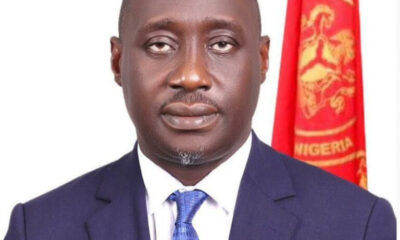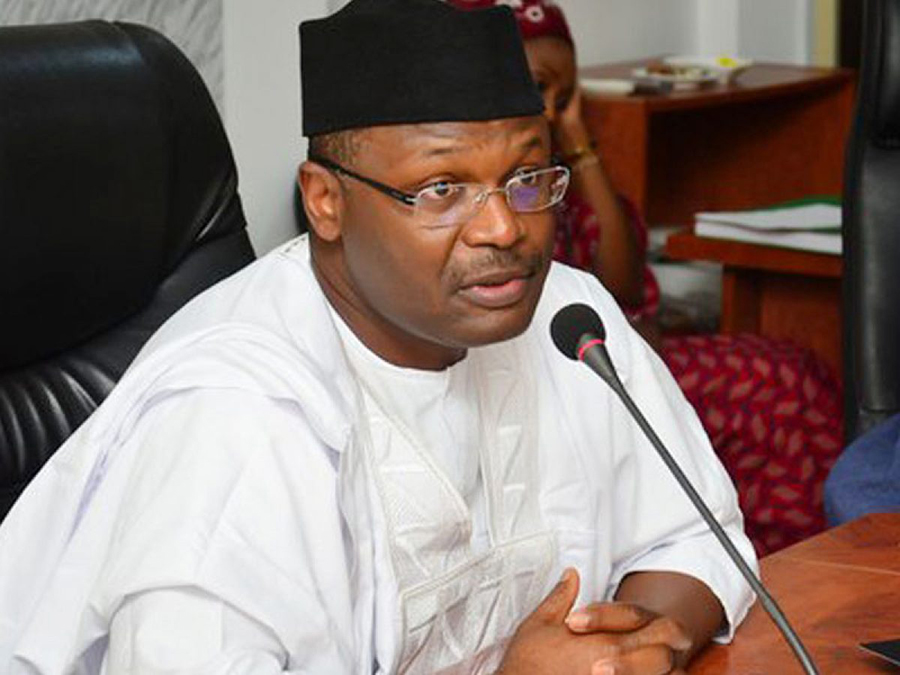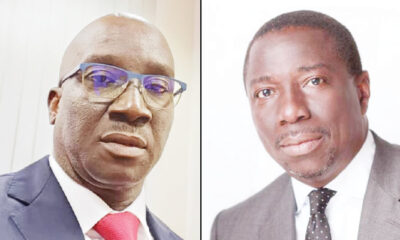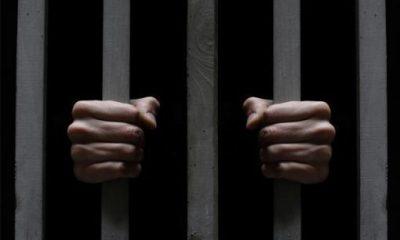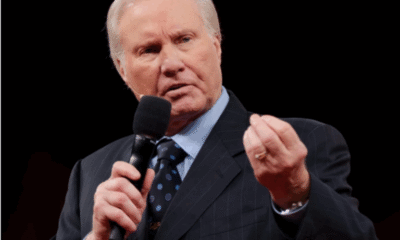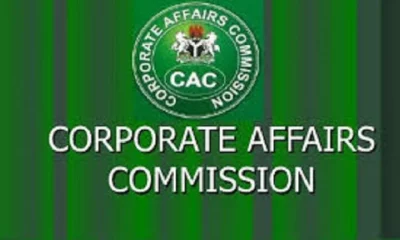Business
Nigeria’s Economy On Brink Of Collapse, NECA Raises Alarm
Published
3 years agoon
By
Editor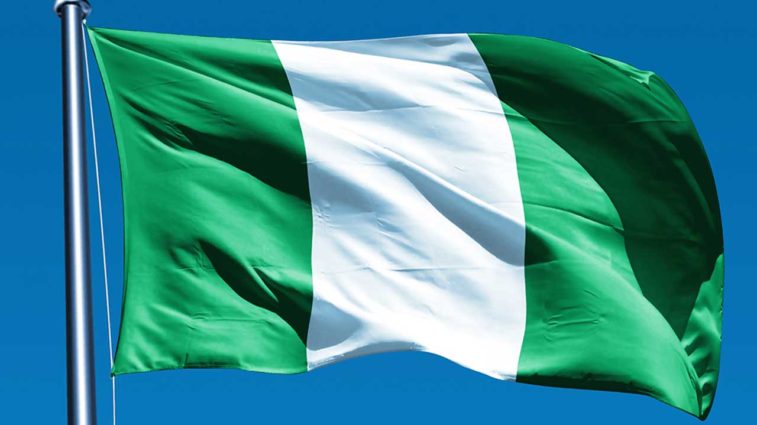
The Nigeria Employers’ Consultative Association, NECA, on Sunday in Lagos, raised the alarm that the nation’s economy is on the brink of collapse, warning that spiralling inflation, rising energy cost, scarcity of FOREX, the dwindling value of the Naira among others, are bleeding the economy.
The Director-General of NECA, Mr. Wale Oyerinde, lamented that the economy was under the weight of an almost comatose aviation sector, stuttering education system, rising debt, depleting foreign reserve and rising fuel subsidy expenses, among others.
The newly-appointed D-G of NECA advised the Federal Government to employ a holistic and multi-pronged approach towards resolving the challenges faced by the nation.
According to him, “The nation is currently faced with multiple challenges.
“(It’s) a dire combination of spiralling inflation, rising energy costs (aviation fuel, diesel, etc.), scarcity of FOREX, dwindling value of the Naira and an almost comatose aviation sector.
READ ALSO: Nigeria’s Budget Deficit Hits N30.58tn In Seven Years
“Also, with a stuttering education system, rising debt, depleting Foreign Reserve and rising fuel subsidy expenses among others, that threatens to lay bare the country’s economy, there is no better time for the Government to reappraise current economic policies and deepen its engagement with the organized private sector.
“While Government’s effort to salvage the economy is commendable, there is, however, a need for a more holistic approach to resuscitate the stuttering economy.
“Being dependent on crude oil for about 90 per cent of its foreign exchange earnings and 80 per cent of its budgetary revenues, Nigeria has always lived dangerously on the precipice, with a major chunk of its revenue dependent on the complexities of global crude demand and supply.
“A dangerous blend of self-destructive tendencies, insecurity and fiscal and monetary policy inconsistencies have also conspired to make the situation worse.
“While revenue continues to shrink, the nation continues to dig its feet deeper into debt.
“At different times over the past few years, various international bodies including the World Bank, International Monetary Fund and the World Trade Organization have warned about the excessive nature of the country’s borrowing.
“While some stakeholders have canvassed that the revenue to GDP ratio of the country is healthy, a recent announcement by the Minister of Finance, Budget and National Planning that the revenue to debt service ratio is in the negative, calls for urgent concern.
“In April, the World Bank warned that the rising cost of fuel subsidy could significantly impact public finance and pose debt sustainability concerns.
“Alas, this projection is almost happening. The Fiscal Performance Report released recently by the Federal Government confirmed the accuracy of these projections.
“The combination of a struggling aviation sector and roads taken over by bandits have also conspired to fuel the situation, leading to rising inflation at 18.6% (according to the NBS).
“These have continued to worsen the promotion of Commerce and the increase the rate of de-industrialization of some regions of the country.”
The DG of the umbrella body for employers in the country, while recommending how to deal with the multi-face challenges, called for “a deliberate and economic priority influenced approach and wide consultation with Stakeholders should commence, with the view of harvesting alternative policy options to re-energize all sectors of the economy.
“While the challenges of revenue shortage are acknowledged, burdening businesses with new taxes or levies will be counter-productive and self-destructive action.
“Over-burdening already burdened businesses will only lead to business closure and an escalation of job losses with consequential effects on our social and economic stability.
READ ALSO: VAT War Between FG, States Affected Our 2022 Budget Proposal – Bauchi Govt
“Government should, in the short-term widen the tax net, reduce wastages in governance, and focus on economic projects that will stimulate the Nigerian economy and guarantee an enabling environment for businesses to operate.
“An enabling environment for local businesses will create the platform for new foreign direct investment, which could increase FOREX inflow into the country.
“In the medium term, the Federal Government should, as a matter of urgency, fix the four national refineries and encourage the development of Modular ones as a precursor to total removal of fuel subsidy.
“With over N5 trillion budgeted for subsidy payment in 2022, an amount larger than the budget for education and agriculture, this is unrealistic and unsustainable.
“Economic interventions aimed at improving living standards (to stimulate consumption) and Enterprise sustainability (to promote job creation) should be implemented.
“While FOREX scarcity persists, allocation of the available FOREX to manufacturing and other productive sectors of the economy should be given priority.”
You may like

The Naira experienced a slight depreciation on Friday at the official market, trading at N1,528.56 to the dollar.
Data obtained from the website of the Central Bank of Nigeria (CBN) showed that the Naira lost N2.73.
This represents a 0.17 percent loss compared to the N1,525.82 recorded on Thursday.
READ ALSO:Naira Appreciates At Official Market
The Naira, which opened the week on Monday with a gain of N9.52 against the dollar, held steady gains until Thursday.
On Wednesday, the local currency gained N3.42 against the dollar and received commendation from the International Monetary Fund (IMF).
The IMF, in its 2025 Article IV Consultation report on Nigeria, commended the CBN for its reforms to the foreign exchange market, which supported price discovery and liquidity.
Business
JUST IN: Dangote Refinery Hikes Petrol Ex-depot Price
Published
2 weeks agoon
June 20, 2025By
Editor
Nigerians may soon pay more for petrol as the Dangote Petroleum Refinery on Friday increased its ex-depot price for Premium Motor Spirit to N880 per litre, raising fresh concerns over fuel affordability and price volatility in the downstream sector.
Checks on petroleumprice.ng, a platform tracking daily product prices, and a Pro Forma Invoice seen by The PUNCH confirmed the hike, representing a N55 increase from the previous rate of N825 per litre.
The increment would ripple across the entire fuel distribution chain, likely pushing pump prices above N900/litre in some parts of the country, especially in areas far from the distribution hubs.
The hike comes despite global crude prices falling. Brent crude dipped by 3.02% to $76.47, WTI fell to $74.93, and Murban dropped to $76.97 on Friday. The decline in benchmarks offers little relief due to persistent fears of sudden supply disruptions.
READ ALSO: JUST IN: Dangote Refinery Sashes Petrol Gantry Price
The refinery has increased its reliance on imported U.S. crude and operational costs amid exchange rate instability, which adds to its pricing pressure.
On Thursday, the President of the Dangote Group, Aliko Dangote, said his 650,000-barrel capacity refinery is “increasingly” relying on the United States for crude oil.
This came as findings showed that the Dangote Petroleum Refinery is projected to import a total of 17.65 million barrels of crude oil between April and July 2025, beginning with about 3.65 million barrels already delivered in the past two months, amid ongoing allocations under the Federal Government’s naira-for-crude policy.
Dangote informed the Technical Committee of the One-Stop Shop for the sale of crude and refined products in naira initiative that the refinery was still battling crude shortages, which had led it to resort to imports from the United States.
READ ALSO:Dangote Stops Petrol Sale In Naira, Gives Condition For Resumption
On Monday, the president of the Petroleum and Natural Gas Senior Staff Association of Nigeria, Festus Osifo, accused oil marketers of exploiting Nigerians through inflated petrol prices, insisting that the current pump price of PMS should range between N700 and N750 per litre.
He criticised the disparity between falling global crude oil prices and the stagnant retail price of petrol in Nigeria.
“If you go online and check the PLAT cost per cubic metre of PMS, convert that to litres and then to our Naira, you will see that with crude at around $60 per barrel, petrol should be retailing between N700 and N750 per litre.”
He asserted that if Nigerians bear the brunt of higher fuel costs, they should be allowed to enjoy the benefit of low pricing.
His forecast of increased costs now appears spot on, considering the latest developments.
Marketers are already adjusting. Depot owners and fuel distributors in Lagos and other cities anticipate a domino effect, with new price bands expected to follow Dangote’s lead.
Many had held back pricing decisions since Tuesday, when the refinery halted sales and withheld fresh PFIs. The delay fueled speculation, allowing opportunistic price hikes across various depots.

The Naira, which has seen steady appreciation against the Dollar all week, closed stronger on Friday, trading at ₦1,580.44 in the official forex market.
Data from the Central Bank of Nigeria’s website show the Naira gained ₦4.51k against the Dollar on Friday alone.
This marks a 0.28 per cent appreciation from Thursday’s closing rate of ₦1,584.95 in the official foreign exchange window.
The local currency maintained consistent strength throughout the week, recording gains daily.
READ ALSO: Naira Appreciates Against Dollar At Foreign Exchange Market
On Monday, May 19, it traded at ₦1,598.68; on Tuesday, at ₦1,590.45; and on Wednesday, at ₦1,584.49.
These gains suggest increased investor confidence and improved forex supply, contributing to the naira’s performance.
Meanwhile, the CBN, at its 300th Monetary Policy Committee meeting held Monday and Tuesday, retained the Monetary Policy Rate at 27.5 per cent.
- JUST IN] 2027: South-South APC Endorses Tinubu, Gour Govs For Re-election
- Osun Monarchs Donate Air-conditioners, Computers To Support NUJ’s E-Library Project
- Man Seeks End Of 16 Years Wedlock For Lack Of Love
- Coalition: Why Tinubu Must Not Sleep —Primate Ayodele
- My Wife Goes Clubbing At Will, Cares Less That She’s Childless, Man Tells Court
- I Ran For My Dear Life After My Wife Threatened To Bathe Me With Acid — Husband
- My Husband Leaves Home Whenever We Have Misunderstanding, Woman Tells Court
- 2Face Controversy: Family, Friends Speak Out Amid Apology Backlash
- Burna Boy Turns 34, Reveals Plans To Start A Family
- Cultism: Edo Police Arrest Suspected Killer Of Three Vigilantes, 15 Others
About Us
Trending

 Sports2 days ago
Sports2 days agoBREAKING: Liverpool Star Diogo Jota Is Dead

 News4 days ago
News4 days agoSenator Withdraws From Legislative Duties Over Health Challenge

 Politics4 days ago
Politics4 days agoINEC Unveils 2025-2026 Election Timetable, Resumes Voter Registration

 Headline4 days ago
Headline4 days agoUS-based Lawyer Becomes First Nigerian To Travel To Space

 Politics3 days ago
Politics3 days agoEdo: S’Court Reserves Verdict On Ighodalo’s Case Against Okpebholo

 Metro4 days ago
Metro4 days agoCleric Jailed 53 years For Sexually Assaulting 14-year-old Daughter

 Headline4 days ago
Headline4 days agoTelevangelist, Jimmy Swaggart, Is Dead

 Headline3 days ago
Headline3 days agoAU Helicopter Crashes In Somali Capital – State Media

 News4 days ago
News4 days agoCAC Unveils AI-powered Portal For 30-minute Company Registrations

 Metro3 days ago
Metro3 days agoControversy Over Pregnant Woman Buried Alive In Edo


